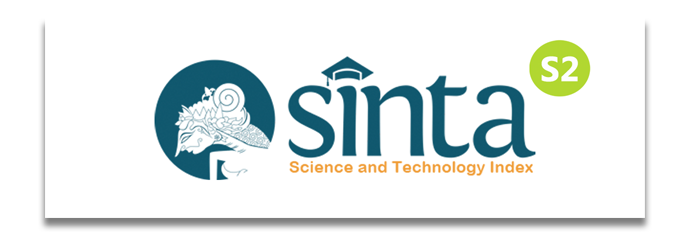Exploring the Knowledge, Attitudes, and Behaviors Students in a Private High School Medan Students Regarding Sexually Transmitted Infections
Downloads
Background: Sexually transmitted infections (STIs) remain a global public health issue, particularly among adolescents who face heightened risks due to biological, social, and behavioral factors. In Indonesia, STI cases continue to rise despite awareness efforts. A private religious school, offers a unique context for examining STI awareness, yet little research has focused on this population in Medan. Purpose: This study aims to assess STI knowledge, attitudes, and behaviors among private high school students, addressing a critical research gap. Methods: A cross-sectional study was conducted among 68 twelfth-grade students, selected via simple random sampling. Data were gathered through a validated 40-question survey on STI knowledge, attitudes, and behaviors. Data were analyzed using SPSS software, and result are presented in descriptive statistics. Result: Findings showed that 47% of students had moderate STI knowledge, 26.5% high, and 26.5% low. Regarding attitudes, 61.8% were moderate and 38.2% showed strong preventive attitudes. Preventive behaviors were strong in 57.4%, moderate in 33.8%, and poor in 8.8%. Female students displayed higher understanding and more positive attitudes toward STI prevention than males. Conclusion: The study concludes that students of a private high school in Medan possess a moderate understanding of STIs, a generally moderate level of attitude and a high level of preventive behavior.
World Health Organization. WHO guidelines for the treatment of Neisseria gonorrhoeae , Geneva: World Health Organization; 2016 [cited 2025 Apr 11].
Kementerian Kesehatan Republik Indonesia. Laporan Kinerja Direktorat Pencegahan dan Pengendalian Penyakit Menular Tahun 2023. Jakarta: Direktorat Jenderal Pencegahan dan Pengendalian Penyakit; 2024.
Kementerian Kesehatan Republik Indonesia. Peraturan Menteri Kesehatan Republik Indonesia Nomor 25 Tahun 2014 tentang Upaya Kesehatan Anak. Jakarta: Kementerian Kesehatan Republik Indonesia; 2014.
Witri Y. Strategi Pencegahan Infeksi Menular Seksual Pada Remaja Putri Di Lembaga Kesejahteraan Sosial Anak Cabang Muhammadiyah Juwiring. BSN. 2023;2(1):8-12.
Mustar M, Hasnidar H, Abbas HH, Safitri NN. Efektifitas Video Sebagai Media Edukasi Kesehatan Terhadap Sikap Remaja Mengenai Infeksi Menular Seksual (IMS) ada Remaja. Window of Health: Jurnal Kesehatan. 2023;6(2):179–88.
Betan A, Pannyiwi R. Analisis Angka Kejadian Penyakit Infeksi Menular Seksual. J. Ilm. Kesehat. Sandi Husada. 2020;12(2):824–30.
Badan Pusat Statistik Kota Medan. Jumlah Penduduk Kota Medan Menurut Kelompok Umur dan Jenis Kelamin (Jiwa), 2020–2022. Medan: Badan Pusat Statistik Kota Medan; [cited 2025 Mei 10].
Simorangkir SJV. Penyuluhan Cara Mengenali Tanda Dan Gejala Penyakit Menular Seksual Serta Pencegahannya Kepada Para Pelajar di SMAN1 Silima Pungga Pungga. JIPAM. 2022;3(1):62–73.
Harahap AP. Gambaran Tingkat Pengetahuan, Sikap dan Perilaku Siswa-Siswi SMA Negeri 1 Aek Natas tentang Jenis-Jenis Infeksi Menular Seksual [skripsi]. Medan: Universitas Sumatera Utara; 2023; [cited 2025 Mei 10]
Elisabeth, Magdalena Simatupang M, Munir D, Rasiyanti Siregar O. Level of Knowledge, Attitude, and Behavior of Students at SMA Negeri 13 Medan on Prevention of Sexually Transmitted Infections. Sumat. Med. J. 2024;7(1):16–27.
Aulia AS, Utami ED. Determinan Tingkat Pengetahuan IMS pada Remaja Perempuan di Indonesia Tahun 2017. Pros. Semin. Nas. Off. Stat. 2022,2022(1):185–96.
Ezer P, Kerr L, Fisher CM, Heywood W, Lucke J. Australian students’ experiences of sexuality education at school. Sex Educ. 2019;19(5):597–613.
Fonte VRF, Spindola T, Francisco MTR, Sodré CP, André NLN, Pinheiro CDP. Young university students and the knowledge about sexually transmitted infections. Esc. Anna Nery Rev. Enferm. 2018;22(2):3.
Marmi, Margiyati. Pengetahuan, sikap dengan perilaku siswi dalam upaya pengendalian infeksi menular seksual. Jurnal Ilmu Kebidanan. 2014;1(1):14-20.
Rachmawati WC. Promosi Kesehatan Dan Ilmu Perilaku. Malang: Wineka Media; 2019.
Nito PJB, Tjomiadi CEF, Manto OAD, Wulandari D. Hubungan Jenis Kelamin dengan Tingkat Pengetahuan Comprehensive Sexuality Education (CSE) pada Mahasiswa. Dinamika Kesehat. 2021;12(2):402.
Lanes EJ, Mongan SP, Wantania JJE. Perbedaan Pengetahuan dan Sikap Remaja tentang Infeksi Menular Seksual di SMA/SMK Perkotaan dan Pedesaan. e‑CliniC. 2021;9(1):57.
S A. Effect of Stigma on Quality of Life of People with Sexually Transmitted Infections. JQHE. 2020;3(6):186.
Parida D, Indriani I, Kartika S. Analisis faktor yang berhubungan dengan perilaku pencegahan IMS pada kelompok usia produktif 15–24 tahun di wilayah kerja Puskesmas Menteng Palangka Raya. Dinamika Kesehatan. 2020;11(1):49–60.
Mahmudah, Yaunin Y, Lestari Y. Faktor-faktor yang berhubungan dengan perilaku seksual remaja di Kota Padang. Jurnal Kesehatan Andalas. 2016;5(2):448–455.
Ohee C, Purnomo W. Pengaruh status hubungan berpacaran terhadap perilaku pacaran berisiko pada mahasiswa perantau asal Papua di Kota Surabaya. Indones. J. Public Health. 2018;13(2):268–80.
Bodnar K, Tornello SL. Does sex education help everyone? Sex education exposure and timing as predictors of sexual health among lesbian, bisexual, and heterosexual young women. J Educ Psychol Consult. 2019;29(1):8–26.
Shaluhiyah Z, Musthofa SB, Widjanarko B. Stigma Masyarakat terhadap Orang dengan HIV/AIDS. Kesmas. 2015; 9(4):333.
Copyright (c) 2025 Berkala Ilmu Kesehatan Kulit dan Kelamin

This work is licensed under a Creative Commons Attribution-NonCommercial-ShareAlike 4.0 International License.
- Copyright of the article is transferred to the journal, by the knowledge of the author, whilst the moral right of the publication belongs to the author.
- The legal formal aspect of journal publication accessibility refers to Creative Commons Atribusi-Non Commercial-Share alike (CC BY-NC-SA), (https://creativecommons.org/licenses/by-nc-sa/4.0/)
- The articles published in the journal are open access and can be used for non-commercial purposes. Other than the aims mentioned above, the editorial board is not responsible for copyright violation
The manuscript authentic and copyright statement submission can be downloaded ON THIS FORM.















